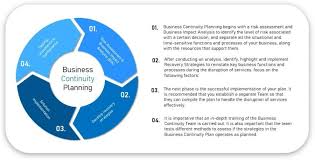Benefits of Renting Meeting Rooms vs. Leasing Full Offices

Businesses today are increasingly exploring flexible solutions for their workspace needs. The debate between renting meeting rooms and leasing full office spaces has become more relevant as companies shift to hybrid models, remote working, and project-based collaborations. Traditionally, leasing an office was seen as a long-term investment that provided stability and control. But with evolving business dynamics, many organizations are realizing the potential cost savings and operational benefits that come with renting meeting rooms on demand instead of committing to a permanent space.
This article provides a detailed comparison of renting meeting rooms versus leasing full offices and examines which option is better for businesses looking to manage costs and maintain flexibility.
Renting Meeting Rooms vs. Leasing Full Offices: Overview
Renting meeting rooms and leasing full office spaces represent two very different approaches to managing a company’s operational requirements. Leasing a full office typically involves long-term commitments, including multi-year leases, upfront deposits, furnishing, and the ongoing responsibility of maintaining the space. These costs are predictable but often substantial. Businesses with stable workforce numbers and predictable space needs may prefer this option as it provides control over the environment and branding opportunities.
On the other hand, renting meeting rooms in Chennai offers a flexible, pay-as-you-go alternative. Instead of committing to a long-term office lease, businesses can rent meeting rooms by the hour, day, or even week. This flexibility means that companies only pay for the space they need when they need it. With this model, there are no ongoing costs for utilities, maintenance, or office management. Businesses that only require space for occasional meetings, presentations, or workshops find this approach particularly appealing. Renting meeting rooms is especially beneficial for startups, small businesses, or project-based teams that operate remotely but occasionally need a professional space for in-person gatherings.
Renting Meeting Rooms vs. Leasing Full Offices: Which is Better for Businesses?
Deciding between renting meeting rooms and leasing full office spaces depends on a business’s unique needs and financial priorities. Each approach comes with its own advantages and challenges.
1. Cost Control and Flexibility
One of the most compelling reasons to rent meeting rooms is the cost-saving potential. Leasing an office comes with fixed costs that remain the same regardless of how much the space is used. Businesses are locked into a long-term contract, which can become a financial burden if the company needs to downsize or switch locations. Leasing also requires significant upfront investment for furnishing, office setup, and often large deposits. These costs can tie up capital that could otherwise be allocated to growth initiatives.
Renting meeting rooms, on the other hand, offers much greater financial flexibility. Companies only pay for the space they use, allowing them to avoid the expenses of maintaining an underused office. Meeting rooms in coworking spaces or serviced office environments often come fully equipped with the latest technology, high-speed internet, and all the amenities needed for a successful meeting. This means businesses do not need to invest in furniture or equipment. For businesses that need professional spaces for client meetings, presentations, or team discussions on an occasional basis, this model provides significant savings.
2. Space Utilization and Operational Efficiency
When leasing a full office, businesses must account for not only their current team size but also potential growth. This means leasing spaces that might be larger than needed initially, leading to underutilized areas. A leased office also requires regular maintenance, utilities, and operational management, all of which add to the overall cost. Managing a full office space can be resource-intensive, particularly for smaller businesses without dedicated facilities teams.
Renting meeting rooms eliminates the inefficiencies associated with underused office space. It allows companies to scale their space needs according to specific requirements. Whether hosting a large conference or a small brainstorming session, businesses can choose the right-sized room without worrying about wasted space. This approach maximizes the efficiency of space utilization, as companies only book what they need at any given time.
The operational burden is also reduced, as the management of meeting rooms, including cleaning, maintenance, and technical support, is handled by the provider. This frees up business resources and allows teams to focus on their core activities rather than office management.
3. Image and Professionalism
For companies that regularly meet with clients, investors, or partners, the image they project through their workspace can be critical. Leasing a full office allows businesses to design and personalize the space to reflect their brand, creating a professional environment that can impress visitors. A dedicated office also allows companies to maintain full control over the meeting environment, from the layout of the space to the branding elements on display.
Renting meeting rooms, however, can also offer businesses the opportunity to present a professional image. High-quality meeting rooms in prestigious locations, often located in central business districts or upscale coworking spaces, allow businesses to host meetings in environments that exude professionalism.
Providers of rental meeting rooms often equip their spaces with modern décor, advanced technology, and premium services like reception and concierge support. For businesses that need to make a strong impression without the long-term financial commitment of a leased office, renting meeting rooms provides a cost-effective way to maintain a professional presence.
4. Adaptability to Changing Business Models
The modern business environment is characterized by rapid change, with companies often needing to adapt quickly to shifting demands. Leasing a full office can limit a company’s ability to remain agile, as moving offices or downsizing can be costly and time-consuming. Businesses that experience rapid growth may find themselves needing to relocate to larger spaces, while those that contract may be left with unused office space that they are still obligated to pay for.
Renting meeting rooms allows businesses to remain agile and responsive to their changing needs. Whether it’s a one-time event, a monthly team meeting, or a quarterly client presentation, businesses can adjust their space requirements as needed.
The flexibility to book rooms for specific timeframes and purposes means that businesses are not tied to a fixed location. This adaptability is particularly beneficial for companies that operate in dynamic industries, as it provides the freedom to shift resources and space requirements as the business evolves.
Conclusion
Renting meeting rooms offers significant cost savings, flexibility, and the ability to scale space requirements on demand. This model works well for companies with occasional meeting needs or those embracing remote work. Leasing a full office, while more costly, can offer stability and control, particularly for businesses with consistent space requirements. The decision should be based on the company’s priorities—whether that’s maintaining long-term control of a dedicated space or optimizing costs and flexibility through rental meeting rooms. The right choice will enable businesses to manage resources effectively while maintaining professionalism and efficiency.





